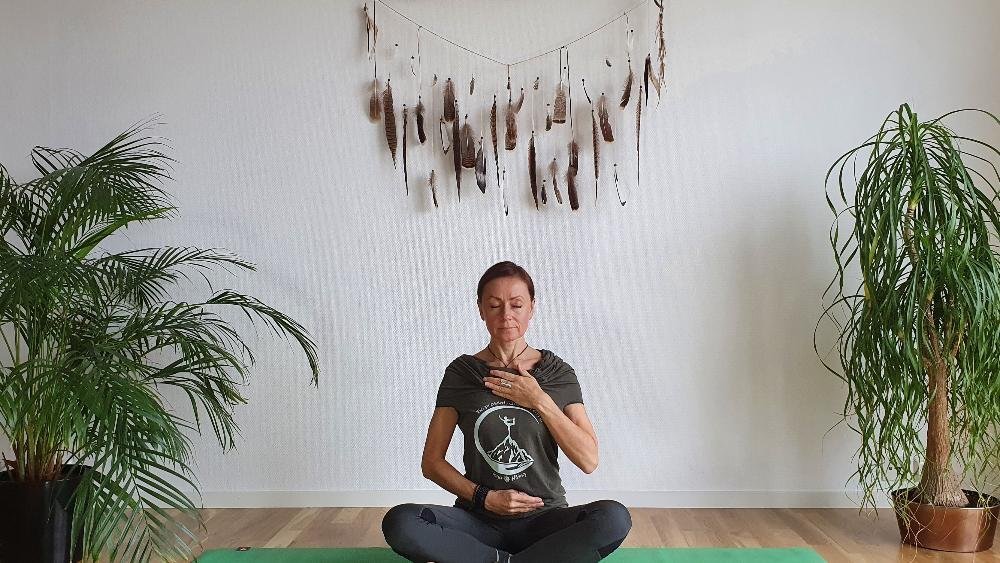
New Year, new goals, new dreams, new habits in 2022?
As the end of the year 2021 is approaching let's be grateful for all the good that happened and celebrate our victories!
The end of the year is always a good time to look back and reflect. 2021 has been a difficult year for many, but there is always something good to be thankful for. In order to set new goals, we must first identify where we are now and how we got there. Is your life in balance? What needs more attention? What can you give up?
The best way to reap the benefits of gratitude is to notice the new things you're grateful for every day. Gratitude journaling works because it slowly changes the way we perceive situations by adjusting what we focus on. While you might always be thankful for your great family, just writing “I’m grateful for my family” week after week doesn't keep your brain on alert for fresh grateful moments. Get specific by writing “Today my husband gave me a shoulder rub when he knew I was really stressed” or "My sister invited me over for dinner so I didn't have to cook after a long day." And be sure to stretch yourself beyond the great stuff right in front of you. Opening your eyes to more of the world around you can deeply enhance your gratitude practice. Make a game out of noticing new things each day.
A New Year's Resolution is a list of goals you'd like to accomplish in the upcoming year. This tradition is followed by millions of people every year, and it's a great way to start the year with a positive mind and clear goals!
New Year resolutions
Sometimes figuring out how and what to write on your list can be overwhelming and confusing. But as long as you keep these five tips in mind, you'll have the perfect New Year's Resolution.
- Focus on self-improvement
- Be specific
- Set a timeframe
- Keep it short and realistic
- Get out of your comfort zone and have fun
It is important to have goals that will help you become a better person. Doing more sports, eating healthier, donating to charity, and learning a new language or instrument are the kind of things that people tend to write in their New Year's Resolution. Also, focus on yourself and not the people around you.
Remember to write down specific goals, such as “eating one piece of fruit every day” instead of “eating healthier,” so you can measure your success!
It's better to have realistic goals that you know you can accomplish than to have goals you might never reach. Stay focused on a few realistic goals instead of having a long list of impossibilities.
Don't forget what New Year's Resolutions are all about: trying new things you haven't done before and having fun while doing so! Don't feel disappointed or pressured if you don't accomplish your goals by the end of the year. Remember to just have a great time and learn from every experience!
New Year's resolutions are meaningless without the habits to help you stick to them. Don't rely on willpower when it comes to your New Year's resolutions. All you need is to create small, new habits. When the change is small, it is easier to implement and be sustainable.
Do your New Year's resolutions include a healthier lifestyle? More exercise, yoga, meditation, healthy food, growth, and development?
I think it is important to start each day with the right foot, even if it means needing to push past any feelings of grogginess or tiredness to do so. New Year's promises are easily forgotten. Therefore, you should update and renew your goal every morning. Create your morning ritual. Find a substitute for the habits you want to change. This makes the transition easier.
Set an intention for every day. It can be done on your yoga mat, in the bathroom, or while drinking your morning coffee. Be aware of your choices and mindful of your actions. Our intentions create our reality.
There are certain steps you can take each morning that could help improve your physical mobility, mental clarity, and focus while eliminating any stiffness, grogginess, or tiredness that often accompanies mornings. In the mornings our bodies are stiff and sore and the older we get the worse.
A short yoga-meditation routine every morning helps you to:
- set an intention for every single day, week, and month
- remember your New Year's resolution and move in the right direction
- loose up your muscles, removing stiffness
- increase energy in the body
- decrease stress and anxiety
- stay calm and focused during the whole day
- be present and balanced
- improve mental clarity
- be the best version of yourself
You will find my 10 min Grounding Yoga youtube video by clicking here.
Becoming grounded - is one of the most desired results of practicing yoga. Grounding connects us to the present moment. It pulls us into our physical experience of right now, and in the process, creates a sense of ease in the mind and stability in the body. Grounding creates calm, destroys stress, and reminds us of who we are by diverting our attention from thinking and making us feel at home in our own bodies. The process of grounding is an invitation to trust that we are and will be supported. It's a reminder of our deep connection to the earth beneath us, and the power it has to affect the way we think, feel, and express ourselves.

